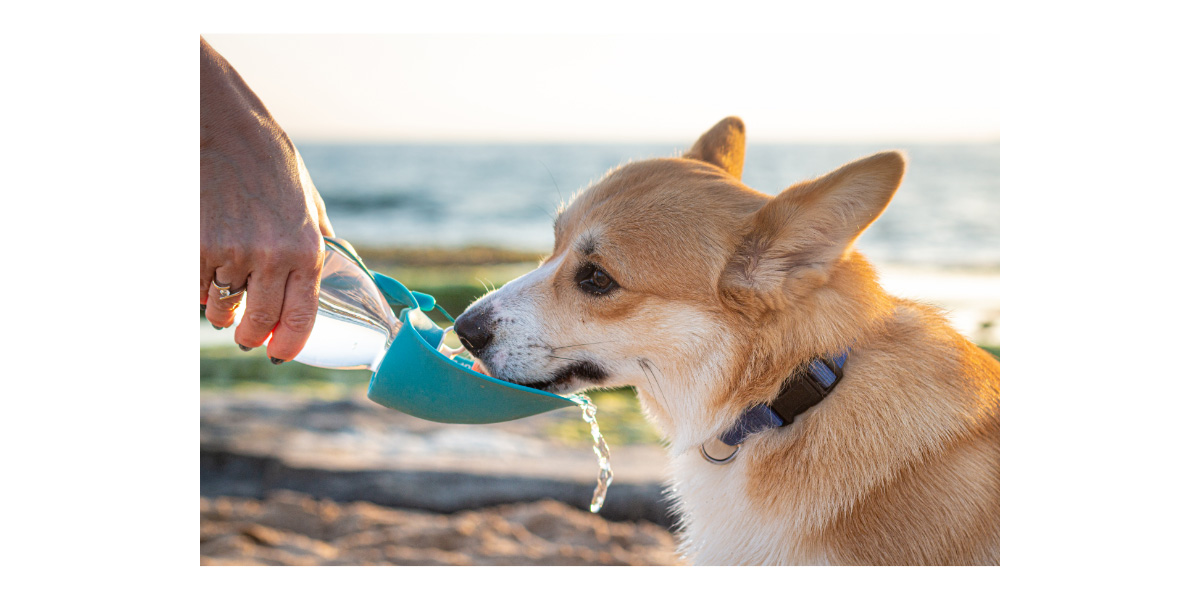Signs of Dehydration In Pets
Doctor of Veterinary Medicine

While efforts are made to answer all questions as quickly as possible, if an immediate answer is required or if your pet is in need of urgent or emergency care, contact your pet's veterinarian immediately.
Doctor of Veterinary Medicine

You will receive an answer from Dr. Lindsay and our vet/tech team as soon as possible, usually the same day.
All answers are provided for informational or educational purposes only, and are intended to be a supplement to, and not a substitute for, the expertise and professional judgment of your pet's veterinarian.
It may be necessary to consult your pet's veterinarian regarding the applicability of any opinions or recommendations with respect to your pet's symptoms or medical condition.
CloseDoctor of Veterinary Medicine

An error has occurred, please reload the page and try again.
CloseWhile efforts are made to answer all questions as quickly as possible, if an immediate answer is required or if your pet is in need of urgent or emergency care, contact your pet's veterinarian immediately.
There is no answer related to your question

Dogs and cats, like other mammals, need to take in enough water each day to support their digestion, the circulation of blood throughout their body, and even healthy brain function.
Dehydration in pets, whether it’s caused by exposure to hot weather, excessive exercise, or illness, can lead to serious consequences like dizziness, poor digestion, constipation, lethargy, and in severe cases, seizure and collapse.
Be on the lookout for signs of dehydration in your pets, especially in the summer and when they’re losing water due to vomiting or diarrhea.
Signs Of Dehydration In Pets
In dogs and cats, you can sometimes detect dehydration through a “skin tent” test. Gently lift the skin between their shoulder blades, then let go. Healthy, hydrated skin has good elasticity, meaning it will immediately snap back into place. In dehydrated animals, the skin will take longer to un-tent.
Your pet’s gums can also show telltale signs of dehydration. The gums should be pink and moist. When gently pressed with a fingertip, the gums will develop a white spot that quickly turns pink again. A dehydrated animal will have dry, pale gums and it may take longer for the color to return when the gums are touched.
You may also notice:
- A “sunken” look around the eyes
- Decreased energy
- Lack of appetite
- Decreased urination
- Constipation or dry, hard stools
- An elevated pulse
Preventing Dehydration In Pets
If your cat or dog eats a primarily dry kibble diet, there’s a strong chance they’re chronically dehydrated. Animals, particularly cats, do not have a strong thirst drive and may not drink enough water to stay adequately hydrated.
Cats can become dehydrated if they do not have access to a quality water source. They may not like having their water bowl close to their food. Still water, in nature, is typically stagnant and can be a breeding ground for bacteria, so many cats instinctively prefer moving water from taps and water fountains.
Try adding water to your pet’s food. You can also flavor your pet’s water with a tasty additive like tuna juice, bone broth, fruit puree, or yogurt. Just make sure the additive is free of added seasonings, sugar, and salt.
Dehydration In Sick Pets
If your pet is suffering from a bout of vomiting or diarrhea, they may be prone to dehydration due to loss of fluids. If they refuse to eat or drink water, it can be difficult to help replenish those fluids.
Call your vet if your pet may be dehydrated, is unable to keep fluids down, or if their symptoms worsen or do not subside. Senior pets, puppies and kittens, and those with chronic illnesses are especially vulnerable to life-threatening complications due to dehydration.
 Swipe
Swipe

















